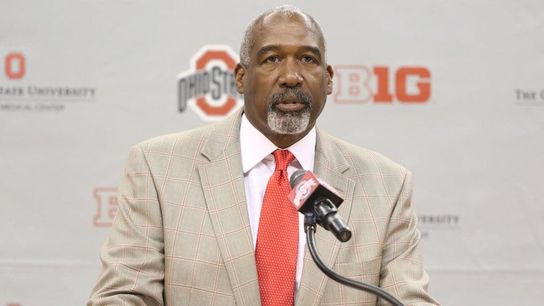Ed O'Bannon took the NCAA to court way back in 2009. The former UCLA basketball player and the Most Outstanding Player of the 1995 NCAA Tournament sued the NCAA and Collegiate Licensing Company over the use of his likeness in the NCAA Basketball 09 video game. The case finally went to trial in the summer of 2014, when judge Claudia Wilken ruled the NCAA's ban on name, image and likeness (NLI) payments violated antitrust laws, ordering schools to offer full cost-of-attendance scholarships, cover cost-of-living expenses, and permitted schools to create trust funds for their athletes.
The college sports establishment faced a choice here. It could sense the changing headwinds in American culture and change on its own before external forces brought change upon them, or it could dig in and fight.
The NCAA chose to dig in and fight, and now here we are.
California's Fair Pay for Play Act is now a law. Similar efforts are under consideration by lawmakers in Washington, South Carolina and New York have similar laws within their legislative digestive systems, and within the past 24 hours lawmakers in Minnesota, Nevada, Florida and Pennsylvania have announced plans to do the same. (Update: Kentucky has now joined the list, too.)
And this doesn't even include the separate, bipartisan efforts to force similar change at the federal level. Both efforts were introduced in the past year.
“California’s bill is a game changer because it will force other states to figure out how to compete with California’s recruitment practices,” Nevada state senator Yvanna Cancela told the Las Vegas Review-Journal.
“The California success is sort of the ringing of the bell that we need to tilt this conversation into common sense reality,” Pennsylvania state representative Dan Miller told TIME. “The future is starting in California. It’s time to roll. Let’s get Pennsylvania in play.”
California's law won't come into effect until 2023; Florida's would start in 2020.
Now, just because these states are considering such actions doesn't mean they're going to happen. Recall what Schoolhouse Rocktaught us about the legislative process in America. And even if all six of those states -- remember, we're just one day from the passage of California's law -- pass their own laws, that doesn't mean every state will.
But that's not the point.
Roughly 18 months ago the U.S. Supreme Court banned the national prohibition on sports gambling, and now 16 states have passed their own laws.
I don't know what the tipping point is where enough states have to pass their own pay-for-play laws where the NCAA is either forced to play ball or it ceases to be a national organization, but it's way, way, way lower than 16. It might be two, depending on the states. It might even be one.
One of the people on the inside with the power to drive change is Ohio State AD Gene Smith, who co-chairs the NCAA's NIL working group, which the NCAA proactively formed in 2014 in response to the O'Bannon rul... which did not form until May.
Left up to his choice, Smith would clearly wave a magic wand to make this all go away.
Smith is clearly uncomfortable with the idea of college athletes accepting money -- no matter the source of that money -- in order for playing a sport, but what makes him the most uncomfortable is the idea of one state's athletes taking NLI payments and another's not.
To be clear, though Smith's attitude certainly represents the majority of administrators' opinions, it's not the only one.
In the end, though, it may not matter what Smith, NCAA president Mark Emmert, SEC commissioner Greg Sankey or anyone else thinks. They couldn't stop the Supreme Court from allowing states to legalize sports gambling, and they can't stop state lawmakers from forever altering their business model. These lawmakers surely don't understand the ins-and-outs of college sports the way ADs and coaches do, and they probably don't care.
But that's the thing about grass fires. They don't care what's in their way, they just burn and burn and burn some more.
